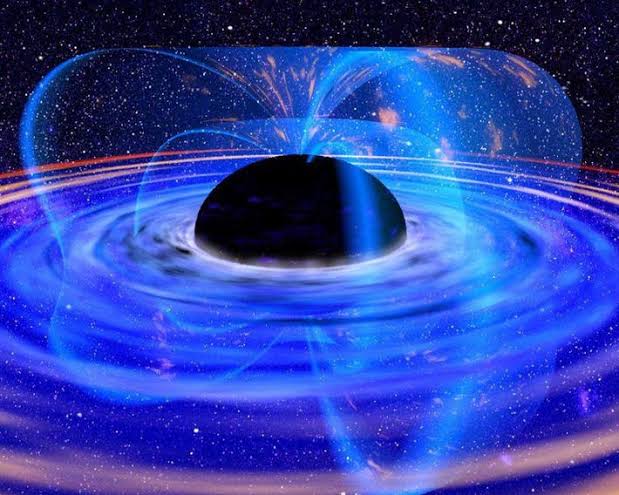A new study published in the journal Physical Review Letters has found that everything in the universe, including black holes, will eventually evaporate. The study, conducted by researchers at Radboud University in the Netherlands, found that Hawking radiation, which is emitted by black holes, is not limited to the event horizon, the boundary around a black hole from which nothing can escape. Instead, Hawking radiation can be emitted from anywhere in the universe where there is a steep enough curvature of spacetime. This means that even the smallest particles, such as electrons and quarks, will eventually evaporate due to Hawking radiation.

The study’s findings have profound implications for our understanding of the universe. If everything in the universe eventually evaporates, then the universe will eventually reach a state of heat death, in which there is no energy left to do work. This would mean the end of all life and all activity in the universe.

However, the study’s authors also point out that the universe is likely to last for trillions of years before it reaches heat death. So, even though everything in the universe will eventually evaporate, we don’t need to worry about it happening anytime soon.
The study’s findings are based on a new mathematical model of Hawking radiation. The model takes into account the fact that the curvature of spacetime is not constant, but varies from place to place. This variation in curvature means that Hawking radiation can be emitted from anywhere in the universe, not just from the event horizon of a black hole.

The study’s findings have been met with mixed reactions from the scientific community. Some scientists have praised the study for its groundbreaking findings, while others have criticized the study’s methodology. However, the study has undoubtedly sparked a new debate about the ultimate fate of the universe.
Stephen Hawking is one of the scientists who theorized that everything in the universe will eventually evaporate. In 1974, he proposed that black holes emit radiation, now known as Hawking radiation. This radiation is caused by the interaction of quantum fields with the event horizon, the boundary around a black hole from which nothing can escape.
The study you mentioned, which was published in the journal Physical Review Letters in June 2023, found that Hawking radiation is not limited to the event horizon of a black hole. Instead, it can be emitted from anywhere in the universe where there is a steep enough curvature of spacetime. This means that even the smallest particles, such as electrons and quarks, will eventually evaporate due to Hawking radiation.
The study’s findings have profound implications for our understanding of the universe. If everything in the universe eventually evaporates, then the universe will eventually reach a state of heat death, in which there is no energy left to do work. This would mean the end of all life and all activity in the universe.
However, the study’s authors also point out that the universe is likely to last for trillions of years before it reaches heat death. So, even though everything in the universe will eventually evaporate, we don’t need to worry about it happening anytime soon.
It is important to note that the study’s findings are based on a new mathematical model of Hawking radiation. The model has not yet been fully tested, so it is possible that the findings are not correct. However, the study has undoubtedly sparked a new debate about the ultimate fate of the universe.

